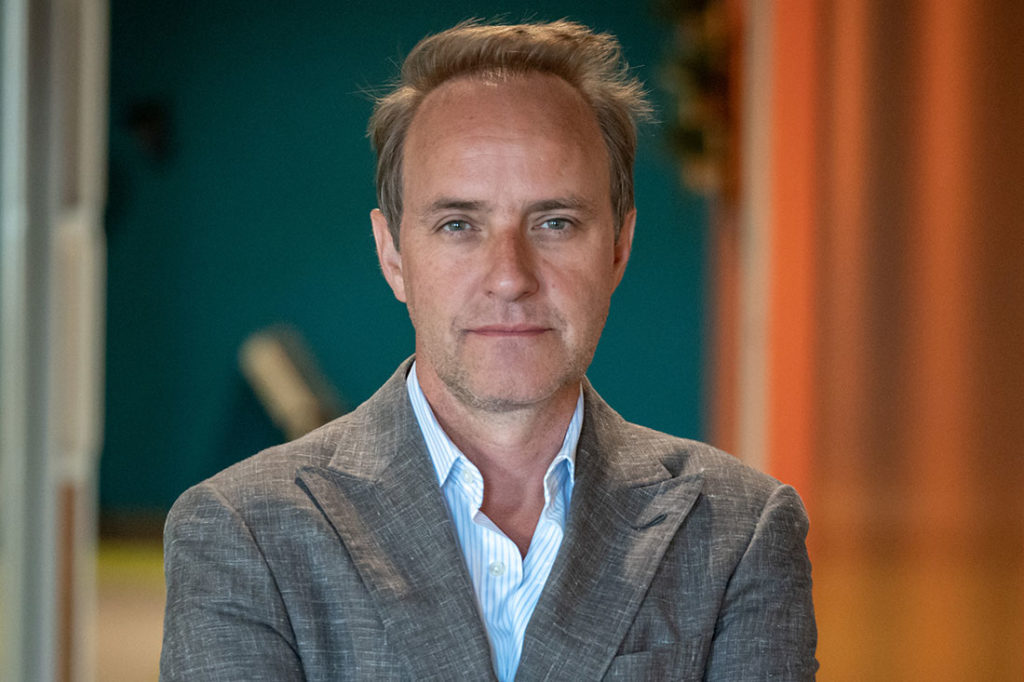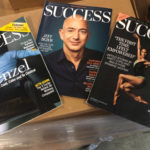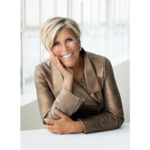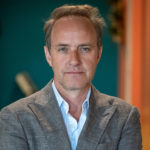It’s mid-July and David Osborne is sitting in the posh but mostly empty Providence, Rhode Island headquarters of Virgin Pulse, the largest workplace well-being company in the world.
The Virgin Pulse HQ has all the exercise desks and yoga spaces its employees need to be healthy while creating software that helps other people be healthy, too. But ever since COVID-19 arrived, almost everyone has been telecommuting. Osborne is one of the few still working in a space meant for 350, and he hates it.
“I like to be face to face with people,” he says. “We’re a very social culture, and not interacting with anyone puts a lot of strain on people. I think we’re just at the starting gate of a long-term impact.”
Yet even as he discusses the pandemic’s effect on society, Osborne isn’t all doom and gloom. Far from it, in fact. His company has recently launched a product that the CEO believes will be incredibly valuable to companies returning to the office after quarantine. More importantly, Osborne is confident that the product, VP Passport, will be integral to employee wellness in a post-pandemic world.
“We’re doing the same thing as Uber and Lyft; we’re innovating in a broken system,” he says. “We do what we do to change lives and get people healthier and happier.”
The company had no way of knowing its gleaming office space would sit nearly vacant for months just three years into its existence, just as Osborne had no way of knowing he would have to lead an ever-expanding wellness company in the face of a monumental health crisis. Nevertheless, when the virus arrived, Osborne and Virgin Pulse were ready.
“When everything is up in the air, you realize everything you’ve been doing set you up for these moments,” says Wendy Werve, Virgin Pulse’s marketing chief. “Because of Dave, we were prepared. Now, that’s going to trickle down to our clients, their clients, their families and on and on.”
* * *
Founded in 2004 as part of Sir Richard Branson’s Virgin Group, Virgin Pulse designs technology that cultivates good lifestyle habits among its client companies’ respective workforces. Osborne joined Virgin Pulse as its president and COO in April 2016, when the company had just bought ShapeUp and Global Corporate Challenge. His first task was a tall order: Merge all three organizations while retaining the tight-knit company camaraderie synonymous with the Virgin brand.
“If you take small companies and put them together, the worry is, ‘I’m no longer a small company,’ ” he explains. “And you can’t walk into an organization and change everything at once.”
At the same time, Osborne wasn’t afraid to mix things up.
“Anytime someone says, ‘That’s the way it’s always been done,’ I want to jump out the window,” he says.
He streamlined the company’s go-to-market strategy, prioritizing collaboration between the engineering, marketing and product teams. He also started over-communicating to his employees, reminding them again and again what Virgin Pulse is and what they come to work to do, underlining the key performance indicators (KPIs) of growth, retention, adoption, changed lives and profit. Likewise, he shared his vision for key traits of Virgin Pulse team members: humble, hungry and smart. Those traits and KPIs are engraved on the back of the touchstone coins Osborne awards to high-performing employees, and all eight members of the executive leadership team must carry their coin with them at all times.
“If you’re an executive and you’re caught without it, you have to pick up the tab,” Osborne says. “And no, you can’t expense it.”
He maintained a focus on company culture and employee well-being when he moved from COO to CEO in June 2017. Virgin Pulse invests heavily in its employees’ health and talents, teaching them to listen to their minds and bodies. Osborne wants the same for everyone else’s employees, too. Products like Virgin Pulse Navigate give client companies’ employees a single platform for reviewing their benefits, checking symptoms, finding in-network providers and more. With each product, the CEO and his team are striving to achieve the seemingly impossible: Simplify healthcare.
“You wouldn’t buy a car or a ticket on a flight without knowing how much it’ll cost,” Osborne says. “But in this field, you make decisions all the time without factoring in all of the costs and all of the options. I love the fact that Virgin Pulse is in this place where we’re really trying to solve those problems and innovate this broken industry.”
At the start of 2020, Osborne’s team had a slate of products on the docket. Then the pandemic arrived, isolating people to their homes and heightening the urgency for Osborne and his colleagues.
“Digital health was already more critical now than ever,” he says. “This pandemic just made it even more urgent.”
Companies needed a one-stop shop for engaging their employees, offering them digital health resources and eventually, the ability to return to work safely. Employees needed more digital resources for managing stress and anxiety while remaining connected to coworkers. Virgin Pulse’s solution was VP Passport, a new platform for the mid- and post-pandemic world.
It all came together quickly .
“We went from, ‘We gotta do this,’ to having nine clients in just 45 days,” Osborne says.
“That’s possible because of Dave’s leadership,” Werve adds. “He created a culture of collaboration where everybody has input, everybody buys in, and we get it done.”
But Osborne is humble. He rarely talks about his Division I golf career, for instance, or the other facets of his extensive résumé. He prefers to keep the focus on his people and, better yet, the future. That’s why the empty office doesn’t bother him. He knew his team would be back in person soon, riding the exercise bikes, playing table tennis and, of course, creating the next platform.
“We’re gonna keep innovating,” he says, surveying the HQ that will soon be humming with activity once more. “We’re gonna be there for people.”
This article originally appeared in the November/December 2020 issue of SUCCESS magazine.
Photo courtesy of David Osborne and Virgin Pulse










